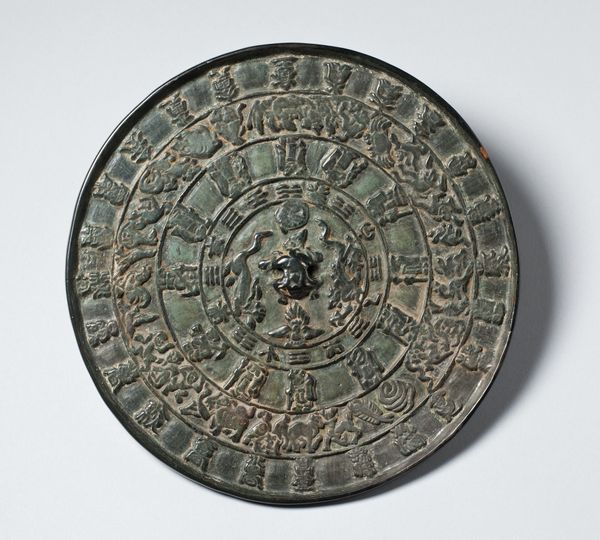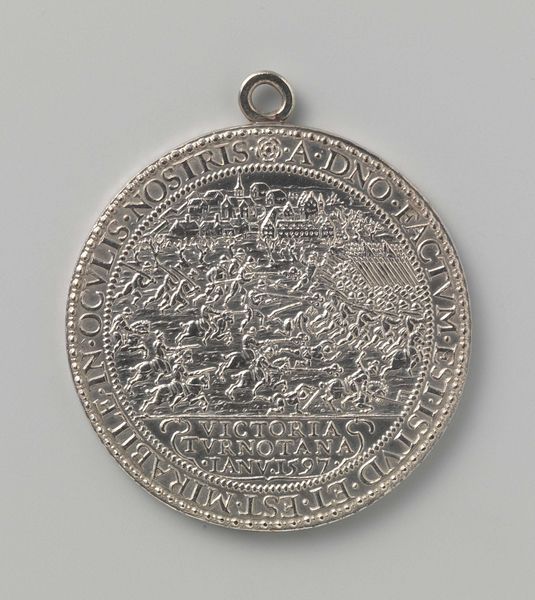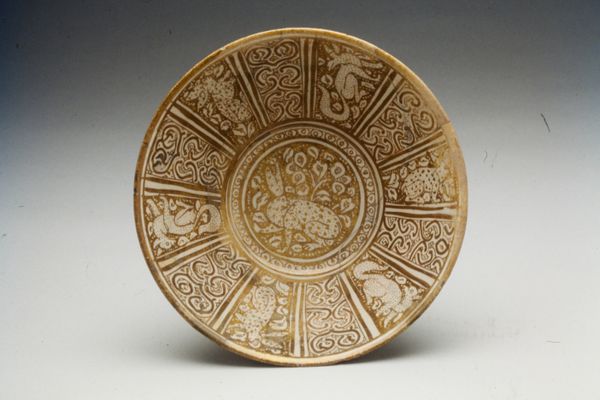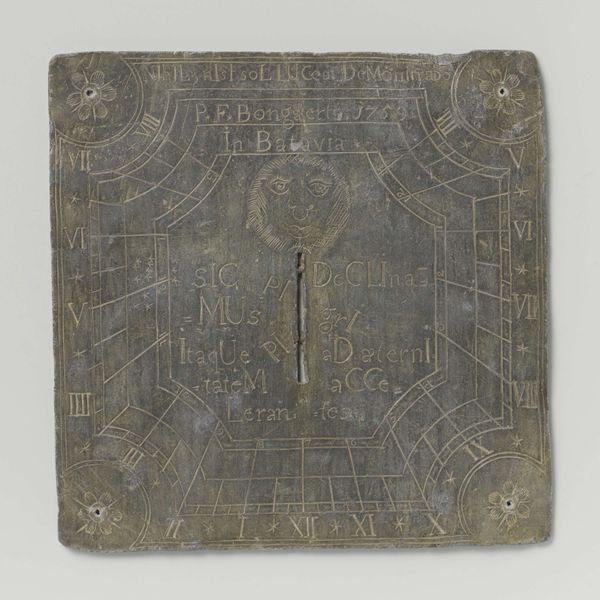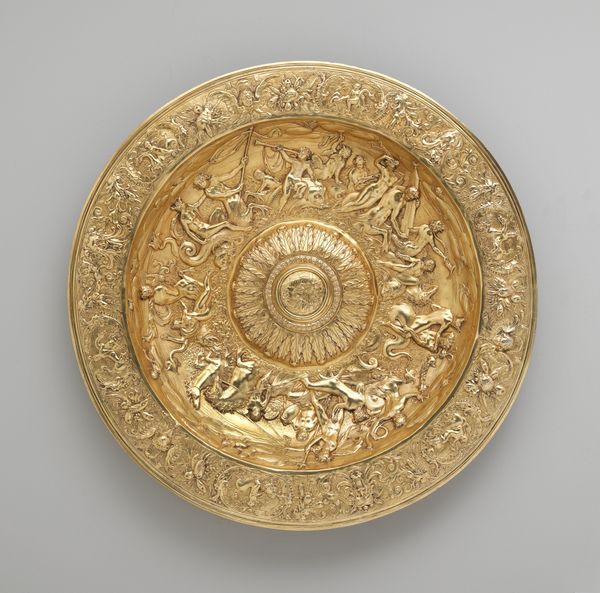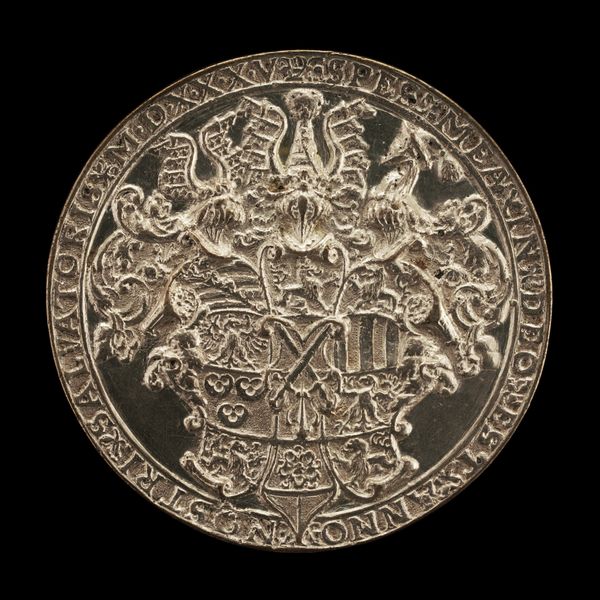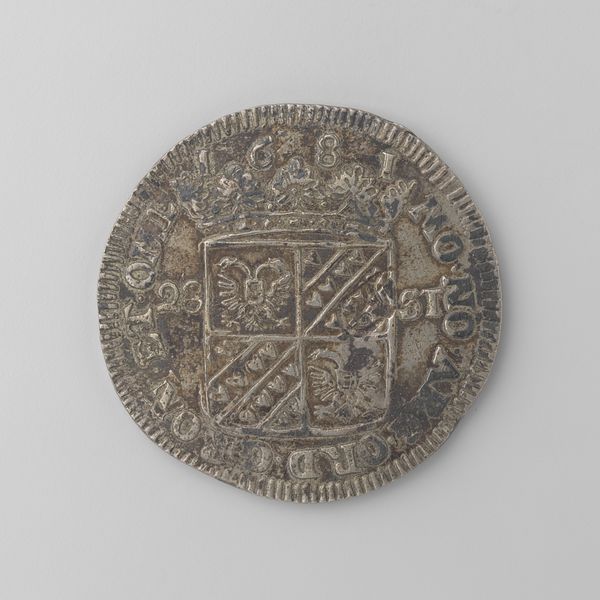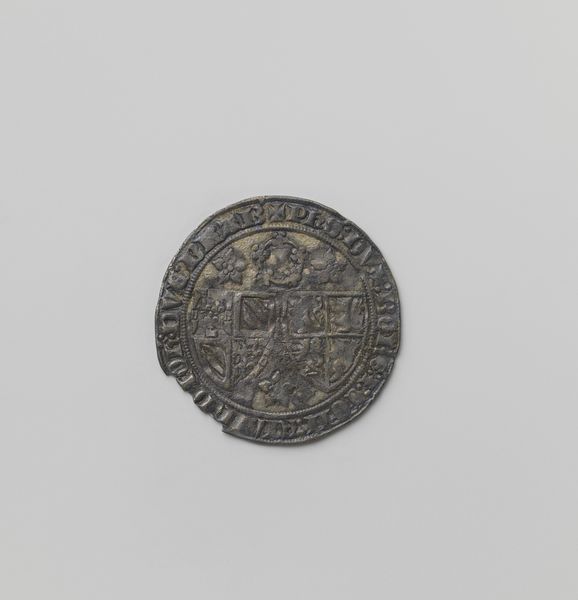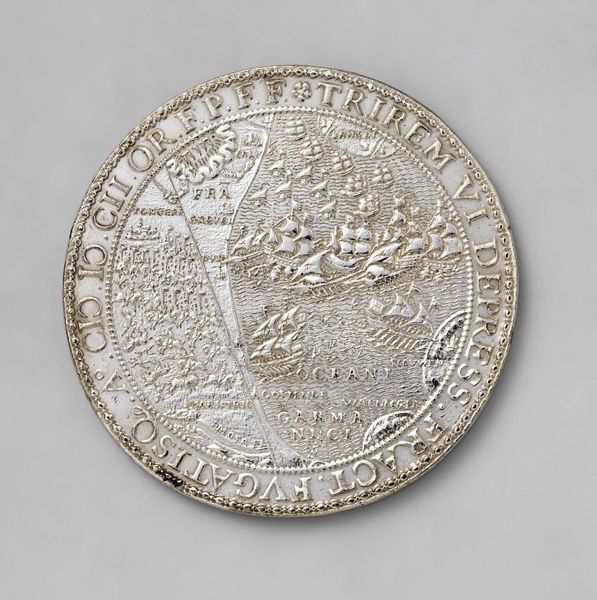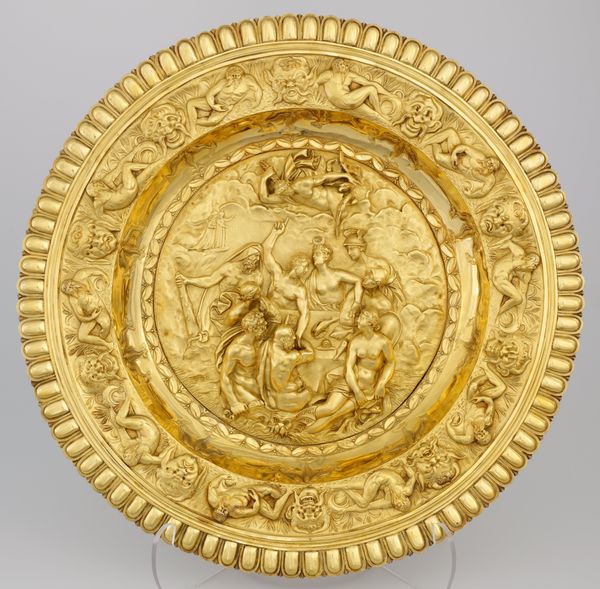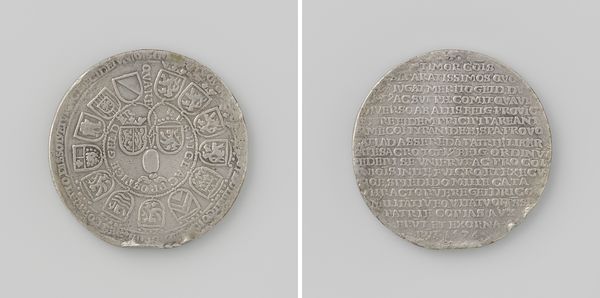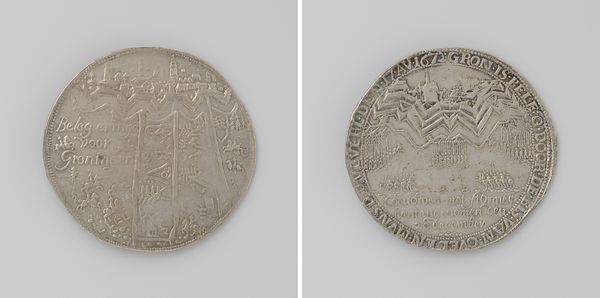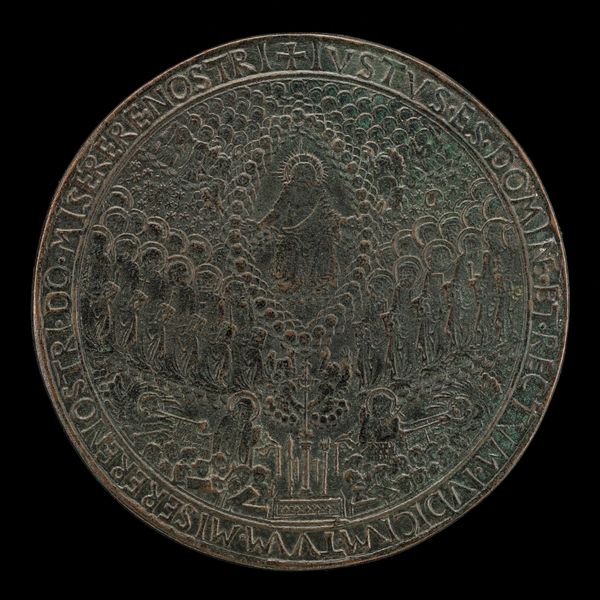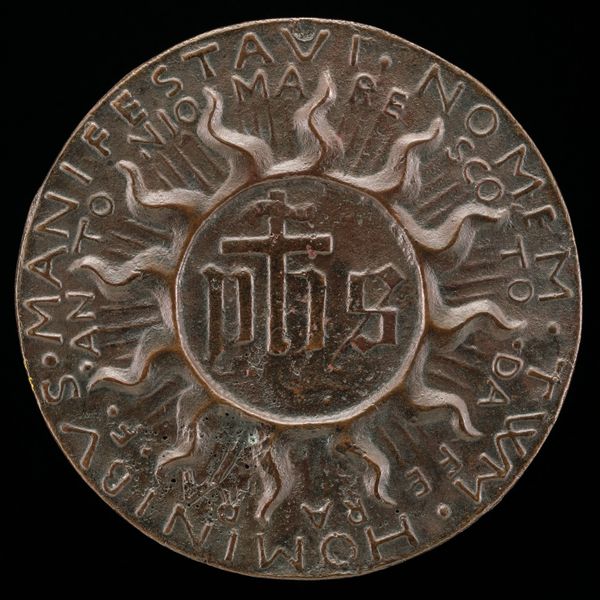
Commemorative dish depicting the fall of the Kingdom of Kandy c. 1815
0:00
0:00
brass, relief, ceramic
#
brass
#
decorative element
#
narrative-art
#
pottery
#
asian-art
#
relief
#
ceramic
#
ceramic
#
islamic-art
#
history-painting
#
decorative-art
Dimensions: 3/4 × 24 × 24 in. (1.91 × 60.96 × 60.96 cm)
Copyright: Public Domain
Curator: Welcome. Before us, we have a commemorative dish depicting the fall of the Kingdom of Kandy. It's believed to date to around 1815. You can find this intriguing object here at the Minneapolis Institute of Art. Editor: Whoa. My first thought? Intricate. Like a whole little world pressed into a circle. All that detail, it's overwhelming—but in a good way! So many figures and vignettes—Where do I even begin? Curator: Indeed, its most salient characteristic is its elaborate detail. Constructed in relief with either ceramic or brass medium, it seems primarily concerned with portraying the history via this incredibly dense field of figures. Its circular nature, with no clear top or bottom, subverts traditional linear narratives. Editor: See, that's what grabs me. It feels like a story told in a spiral, pulling you in, making you circle around. All those tiny people—are they celebrating, mourning, or something in between? The metallic sheen almost romanticizes conflict here, giving a patina to raw events... Is that weird? Curator: Perhaps not weird, but it certainly foregrounds interesting paradoxes. We must acknowledge how decorative art traditions often mediate difficult sociopolitical events, offering a safe space, if you will, to approach violence at a mediated aesthetic distance. Do you think that the effect here mitigates from or amplifies the effect of said historical episode? Editor: Tricky question. I want to say both! It distances you because it’s art, beautiful and somewhat detached. But all those faces, the press of bodies, they also bring it to life in a strangely immediate way. You're looking at a static object which contains a very energetic depiction. Curator: Certainly, and in many ways the anonymous designation seems important, doesn't it? What interpretive license is being conveyed as such through the removal of a particularized creator figure? Editor: True, very little, if any personality seems immediately represented here. And the fact that it's a dish, of all things, speaks volumes. Everyday object meets historical record— kind of like history served on a platter. Curator: A pithy and fitting description, I must concur. I appreciate the opportunity to view this artifact beside you. Editor: Absolutely! It's these objects that remind you that even the most formal historical accounts began somewhere personal.
Comments
minneapolisinstituteofart about 2 years ago
⋮
The vivid scenes hammered into the surface of this large brass dish commemorate the epic fall of the Kingdom of Kandy (1592–1815), the last independent state in Sri Lanka (Ceylon) to succumb to British Crown rule. The design echoes that of Kandyan mural painting, with events staged in a series of illustrated panels, accompanied by brief descriptions incised in the local language (Sinhalese). Here, the central scene depicts Kandy’s controversial king, Sri Vikrama Raja Simha, enthroned in his palace in full regalia, demanding retribution for the betrayal of his chief minister, Ehelepola, who had defected to the British. On the lower level, the king’s executioner hands the wife a pestle, forcing her to crush her child in a rice pounder. Below that the wife herself is drowned in a lake. On the inner rim, rows of British Calvary led by Sir Robert Brownrigg swiftly defeat Vikrama Raja Sinha’s army. Created by Kandyan craftsmen, this dish was likely commissioned by and presented to a British official to celebrate a long-sought triumph. The choice of imagery typifies a prevailing tendency of British Crown rule: to further legitimize its claim by publicizing the tyrannical behaviors of so-called “oriental” kings.
Join the conversation
Join millions of artists and users on Artera today and experience the ultimate creative platform.
